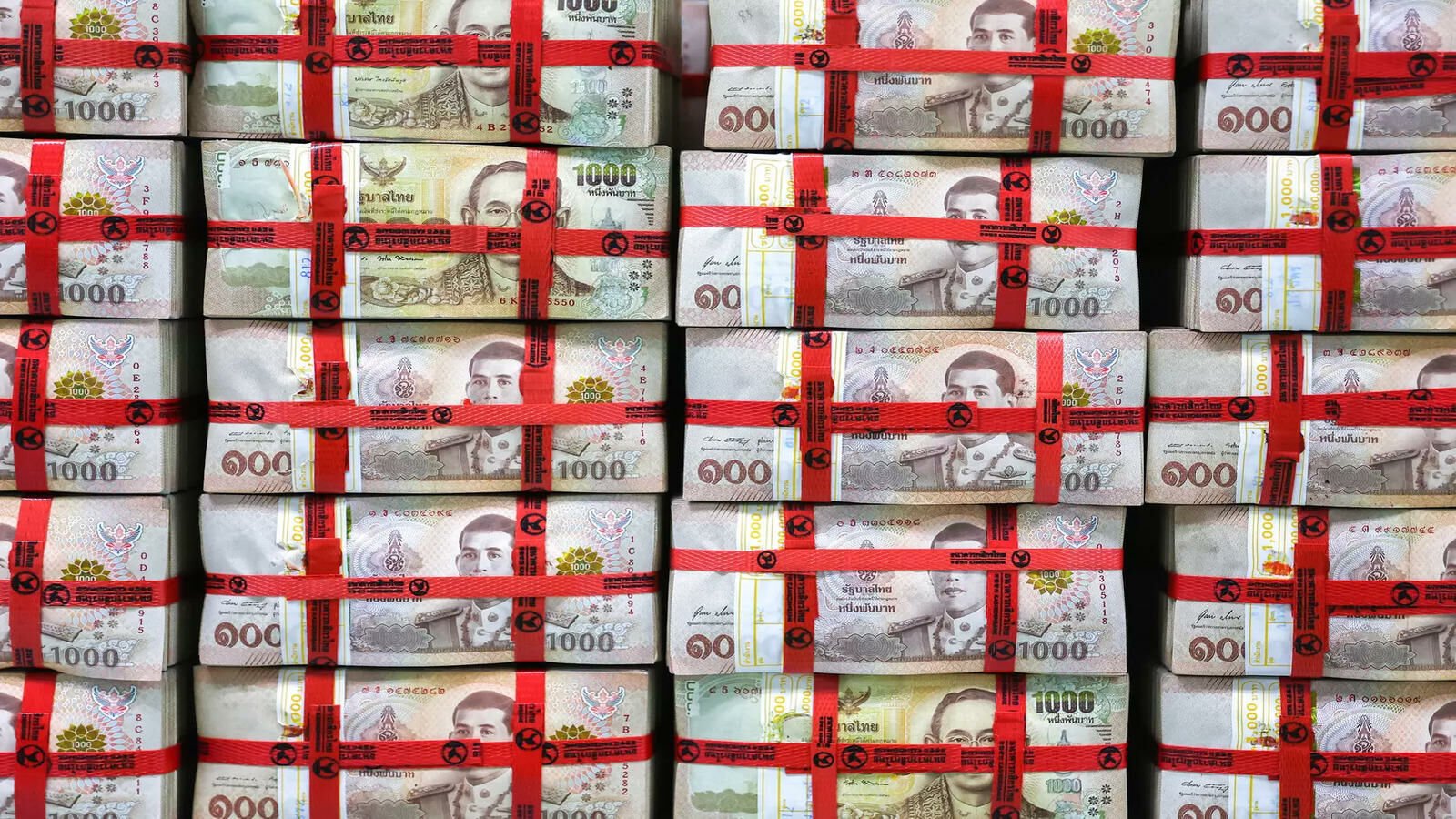Baht-boom fallout: Thai economy in choppy waters after Fed slash

The economy is teetering on the edge as the surging Thai baht causes ripples across the nation. In the wake of a significant rate cut by the US Federal Reserve (Fed), local industries are now urging the Bank of Thailand’s Monetary Policy Committee (MPC) to take swift action.
For over a year, the MPC has held interest rates steady, but the recent Fed decision has upped the ante. Manufacturers, exporters, and the tourism sector are all feeling the pressure as the baht continues to climb. While short-term impacts might not seem drastic, the long-term picture looks far grimmer, warned Kriengkrai Thiennukul, Chairman of the Federation of Thai Industries (FTI).
“The recent Fed cut of 0.5 percentage points is not good for our exports.”
An FTI survey reveals that 40.6% of entrepreneurs are increasingly concerned about the baht’s relentless rise against the US dollar.
This appreciation has been stark: from 36.46 to the dollar in July, down to 34.92 last month. The FTI predicts export growth of 1.5-2.5% for the year, driven largely by the resurrected electronics industry. However, other sectors are struggling to remain competitive.
Global concerns are also weighing heavily. The PMI indices, measuring economic health, have shown declines in the US, Europe, Japan, and China, signalling a potential worldwide slowdown. The Thai Industries Sentiment Index (TISI) plunged to 87.7 points in August from 89.3 in July, underscoring a stagnant domestic economy, a soaring baht, and disastrous northern floods.
Purchasing power
The Thai Chamber of Commerce, while highlighting the baht’s 2% appreciation against the dollar year-to-date, sees growth potential through reviving purchasing power globally. Yet, they also stress the need for the central bank to manage the currency within the 33.3-33.4 range to the dollar, advising exporters to brace for continued baht strength into the year-end.
The accelerated baht appreciation is driven by tourism high season and narrowing US-Thai policy rate gaps. Tourism and Sports Minister Sorawong Thienthong flagged that a robust baht might dampen tourist spending, threatening the government’s ambitious target of 3.5 trillion baht in tourism revenue.
Thaneth Tantipiriyakij, President of the Phuket Tourist Association, estimates a 10% hike in tourist expenditure due to the currency shift, yet maintains confidence in Phuket’s allure.
Yuthachai Charanachitta, CEO of Onyx Hospitality Group, predicts the baht will hold its ground until the US elections in November before potentially depreciating. Despite charging guests in baht, Onyx is poised for a record-breaking fourth quarter in revenue due to strong forward bookings.
But volatility looms. Poon Panitchpibun, a money market strategist at Krungthai Global Markets, forecasts increased baht volatility through year-end, linking it to potential shifts in Bank of Japan (BoJ) policies. Such changes could exacerbate global forex volatility and influence capital flows.
Foreign investors might dabble in short-term profit-taking within Thai markets, yet significant capital outflows aren’t anticipated. Poon anticipates the baht will end the year at around 33.40-33.50 to the dollar.
Inflation rise
Global central banks have been trimming rates after aggressive hikes to curb inflation over the past couple of years. This includes institutions like the European Central Bank, the Bank of England, and central banks in the Philippines and Indonesia, all adopting a more dovish stance now.
Sanan Angubolkul of the Thai Chamber of Commerce sees the Fed’s cuts as a boon for global stock markets, pushing funds into emerging markets. Meanwhile, Maybank in Kuala Lumpur posits that the Fed’s cuts will provide Asian central banks with room to manoeuvre more freely, bolstering global growth.
However, significant rate cuts could spell volatility, with fears of a US economic fallout. The I V Global Securities Senior Executive Vice-President, Viriya Lappromrattana, notes that the Fed’s move ups the ante for Bank of Thailand action.
SCB EIC, the research arm of Siam Commercial Bank, expects the MPC to cut its policy rate by December, with another potential reduction early next year, potentially dropping rates to 2%. This comes as domestic demand shows signs of softening, driven by a weaker US dollar, rising gold prices, and stabilising Thai political conditions.
Kasikorn Research Center reported that the baht’s volatility has been highest against the dollar among regional currencies, with a 7.5% year-to-date fluctuation. Its appreciation by 2.4% makes it the second-best performer in the region after the Malaysian ringgit, Bangkok Post reported.
The road ahead for Thailand is indeed fraught with challenges, as the nation navigates these treacherous economic waters.
Latest Thailand News
Follow The Thaiger on Google News:


























